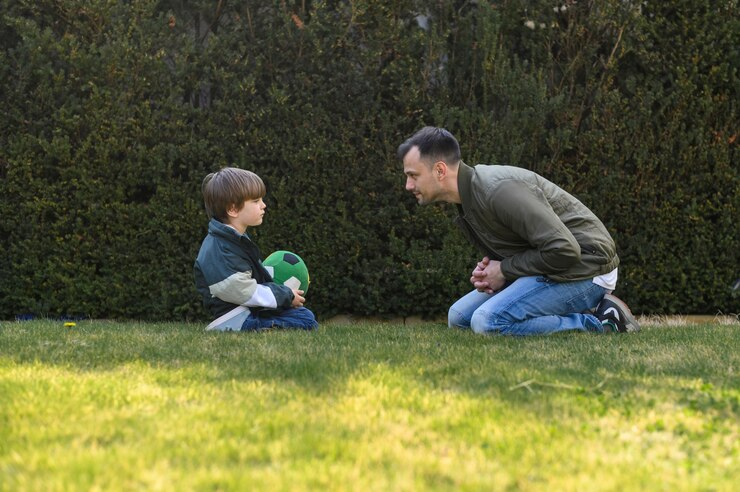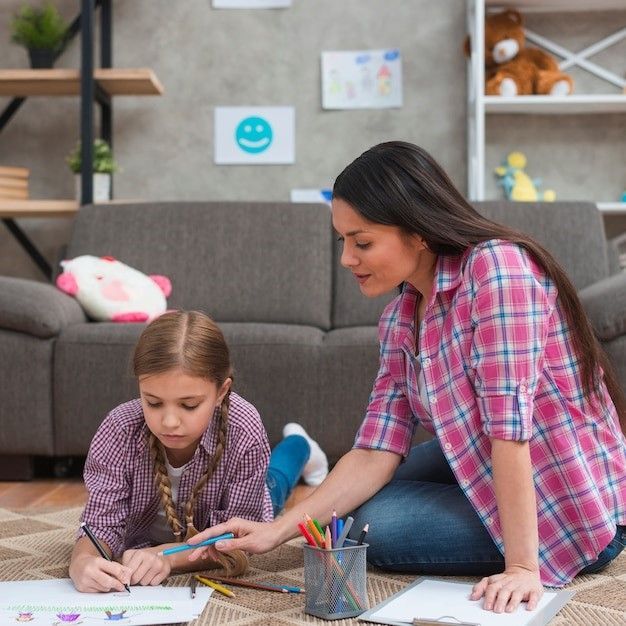As the end of summer approaches, many parents and kids start feeling the "back-to-school blues." This feeling of unease or sadness can affect both children and parents, making the transition from vacation to school challenging. As a certified parent coach and pediatrician, I, Dr. Ceara Deno, understand these struggles first hand. Therefore, to help you and your child manage the back-to-school blues smoothly, I have outlined some key tips below. Let’s have a look:
1. Start Preparing Early
The night before school can be a big source of stress for kids. To reduce anxiety, start preparing a few days in advance. Set up a bedtime routine that gradually shifts from the summer schedule to the school routine. This helps kids adjust their internal clocks and get used to going to bed earlier. Also, make sure school supplies and clothes are ready so that the morning of the first day isn’t rushed.
2. Create a Positive Environment
I believe that a positive mind-set can make a huge difference. Encourage your child to focus on the fun aspects of returning to school, like seeing friends or engaging in activities they enjoy. Creating a positive environment at home can also help. Talk about school in a positive way and share your own positive school experiences.
3. Establish a Routine
Kids thrive on routines. As the first day of school approaches, establish a daily schedule that mirrors the school day. This includes regular wake-up times, meal times, and study times. Consistency helps children feel secure and know what to expect, reducing anxiety about the new school year.
4. Communicate Openly
Open communication is key to handling back-to-school blues. Encourage your child to share their feelings about returning to school. Sometimes, just talking about their worries can make a big difference. Listen to their concerns and offer reassurance. Share your own feelings and experiences to show them that it’s okay to feel nervous.
5. Address Social Concerns
If your child is nervous about social interactions, help them reconnect with friends before school starts. Arrange playdates or activities that allow them to socialize in a relaxed environment. Knowing they have familiar faces at school can ease their anxiety and make the transition easier.
6. Make the First Day Special
Make the first day of school memorable in a positive way. You could plan a special breakfast, write a cheerful note in their lunchbox, or celebrate their first day with a fun activity. This helps create a positive association with the start of the school year and makes the transition feel more exciting.
7. Be Patient and Supportive
Remember that it’s normal for children to feel anxious about going back to school. Be patient and supportive as they adjust to their new routine. Offer encouragement and celebrate their efforts to overcome their worries. Let them know that you’re there for them and that it’s okay to feel nervous.
8. Seek Professional Help If Needed
If you notice that your child’s back-to-school blues are persistent and affecting their daily life, it may be helpful to seek professional guidance. As a parent coach, I, Dr. Ceara Deno, offer personalized support to help families navigate these challenges. If you feel that it might be helpful, consider reaching out to me for a session where we can create a plan that suits your family’s needs.
Let's Rewind:
At Sweet Spot Parent Coaching, I understand the unique challenges families face during transitions, like going back to school. I offer a non-judgmental, supportive approach to help you and your child through these times. If you think personalized support could benefit your family, I invite you to book a session with me. Together, we can work towards a smooth and positive back-to-school experience.
FAQs:
1. What are back-to-school blues?
Back-to-school blues refer to feelings of anxiety, sadness, or nervousness that kids and parents experience when transitioning from summer vacation to the school year. It's a common issue that can affect children’s mood and behaviour as they adjust to new routines and responsibilities.
2. How can I help my child prepare?
Start preparing early by adjusting bedtime routines and getting school supplies ready. Create a positive environment by talking about the benefits of school and helping your child reconnect with friends. Establish a daily routine that mirrors the school day to ease the transition.
3. What if my child is anxious about school?
Encourage open communication about their feelings. Listen to their concerns and offer reassurance. Make the first day special with a positive activity or gesture. If anxiety persists, consider seeking professional help from a parent coach for personalized support.
4. How can I create a positive school environment?
Discuss school in a positive light and share enjoyable past experiences. Make the first day memorable with special routines or celebrations. Establish a consistent daily schedule that mirrors school routines to help your child feel more secure and prepared.
5. When should I seek professional help?
Seek professional help if your child’s anxiety about school is severe or persistent and affects their daily life. A parent coach can provide personalized strategies and support to help manage their feelings and improve their overall adjustment to the school year.











